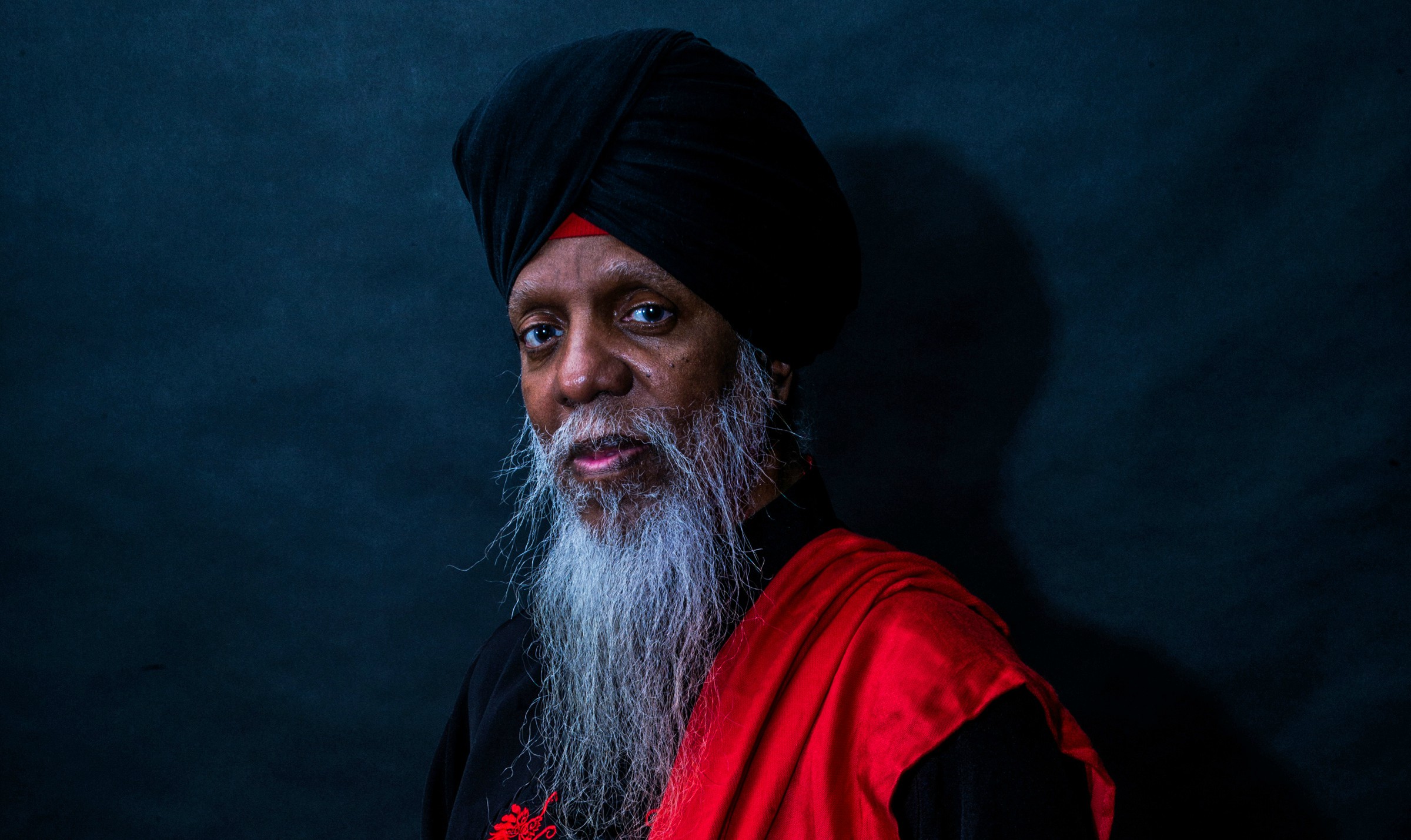Dr. Lonnie Smith lives by a singular core value anytime he performs or records: to play whatever he feels in that moment. The self-taught, turban-wearing organist typically sits upright behind a towering Hammond B-3: rhythmically rocking his body while his hand caresses the keys. His thick fingers on one hand can keystroke arpeggios. Other times, both hands either arch or float like a teeter-totter across the ivories.
“Each note tells me what to do next,” says a humored Dr. Smith via our recent chat, calling the organ “an orchestra” and “all sounds of the world and Earth.” “Everything I play, I don’t know exactly at that moment, but it’s exciting for me. The feel that comes out of me is like a spirit that’s flowing with my heart and comes out through my fingers. It’s like electricity that goes through my body.”
Dr. Smith turned 75 last July 3rd and still speaks with a charming sense of humor. He attributes his good spirits and five-decade career to his fans appreciating his spontaneity. Using a whispering tone in conversation, the virtuoso of improvisation behind albums like Think! (1968), Turning Point (1969), Move Your Hands (1969), Drives (1970), Afrodesia (1975) and Funk Reaction (1977) equates making music to painting on a blank canvas. “I don’t think of making a hit,” urges Dr. Smith. “I play because I enjoy it, and it’s from my heart. I hear the whole thing and what it sounds like before I play it.”
The NEA Jazz Master’s latest release, All In My Mind, is a live album that was recorded on Dr. Smith’s 75th birthday at The Jazz Standard in New York. Dr. Smith didn’t want the record to have any revisions or alterations to the original performances. His goal was to recapture the memory of that night in front of the intimate crowd. “I just play the songs because I’m feeling them,” he says. “And that’s what I want out of music more than anything. It might not be the best track, but it feels better.”
Dr. Smith also credits his audience’s ability to feel the music as indication that his performance is solid. “If you don’t make them happy when you’re playing, if they’re not patting their foot or grinning, then you’re doing something wrong,” he says. “Check yourself. I don’t care how great you are. You’re not that great.”
All In My Mind is Dr. Smith’s second release for Blue Note Records since re-signing with the iconic jazz imprint after a 46-year hiatus in 2016. These days, the Buffalo, New York native enjoys his return to the label he considers “family.” The forefather of acid jazz and founder of his own record label, Pilgrimage Records, embraces his connections to younger musicians. He contributed organ parts to Grammy winner Norah Jones’ sixth studio LP, Day Breaks (2016)/
Dr. Smith recalls the sessions being pleasant: acknowledging Jones as an “excellent musician.” “She’s easy to work with,” he remembers. “She knew what she wanted, and she knows what she’s doing. Some people you work or record with will have an attitude; she wasn’t at all like that.”
Dr. Smith, a former musician in bands led by guitarist George Benson and saxophonist Lou Donaldson, then gives props to Grammy-winning pianist, composer and bandleader Robert Glasper, adding that Glasper reminds him of musicians he jammed with in the ‘60s. “It’s like the boy has been there before,” continues Dr. Smith. “He’s an old soul. I didn’t have to tell him anything either. It’s a young man’s game actually, but I’m still hanging in there. They’re not gonna leave me behind.”
Dr. Smith, who doesn’t read or write charts, continues: “The way they do things now is a little different than what I used to do at Blue Note years ago. We used to just go in and hit it [chuckles]. Three hours later, you’d be done with maybe a couple of albums. You just went on and played. There wasn’t all of this fixing up like Frankenstein.”
Hip-hop music has consistently breathed new life into the musical spells Dr. Smith casts. His compositions and chords have been sampled countless times by A Tribe Called Quest, Wu-Tang Clan, Black Moon, the Beastie Boys, The Beatnuts, Eminem, Snoop Dogg, Fat Joe, N.O.R.E., De La Soul, Whodini, Public Enemy and Run DMC. Dr. Smith takes sampling as a compliment: looking at the reimagined songs as a form of flattery.
“I don’t see what they see because I’m just playing and enjoying music,” says Dr. Smith. “I love to see young people take a song of mine and play it. It may not be my type or style, but it’s beautiful because they’re hearing something else. It makes me feel wonderful when they do that.”
Between his return to Blue Note and being in the company of younger performers, Dr. Smith is fueled to continue doing what he loves. He’s a mainstay at festivals and is in high demand to perform in various international markets. Extensive travel, boarding planes, layovers and waiting to be picked up from the airport can be a bit of a struggle for an easygoing Dr. Smith.
Those potential flukes, Dr. Smith says, doesn’t affect his passion for playing music or cause him to lose his cool. In fact, Dr. Smith adds that he has more passion for the organ now than ever. “I just take it easy and stay positive,” he declares. “I try not to let anything bother me. Music heals you and makes you feel good. That instrument is nothing until you touch it. Once you start playing, you forget all about the negative.”
LISTEN:

